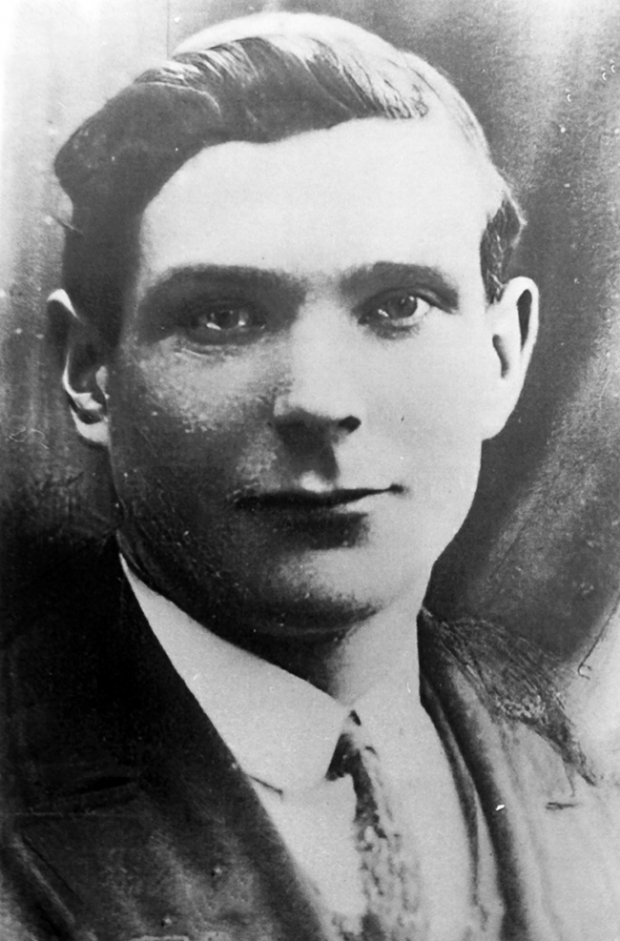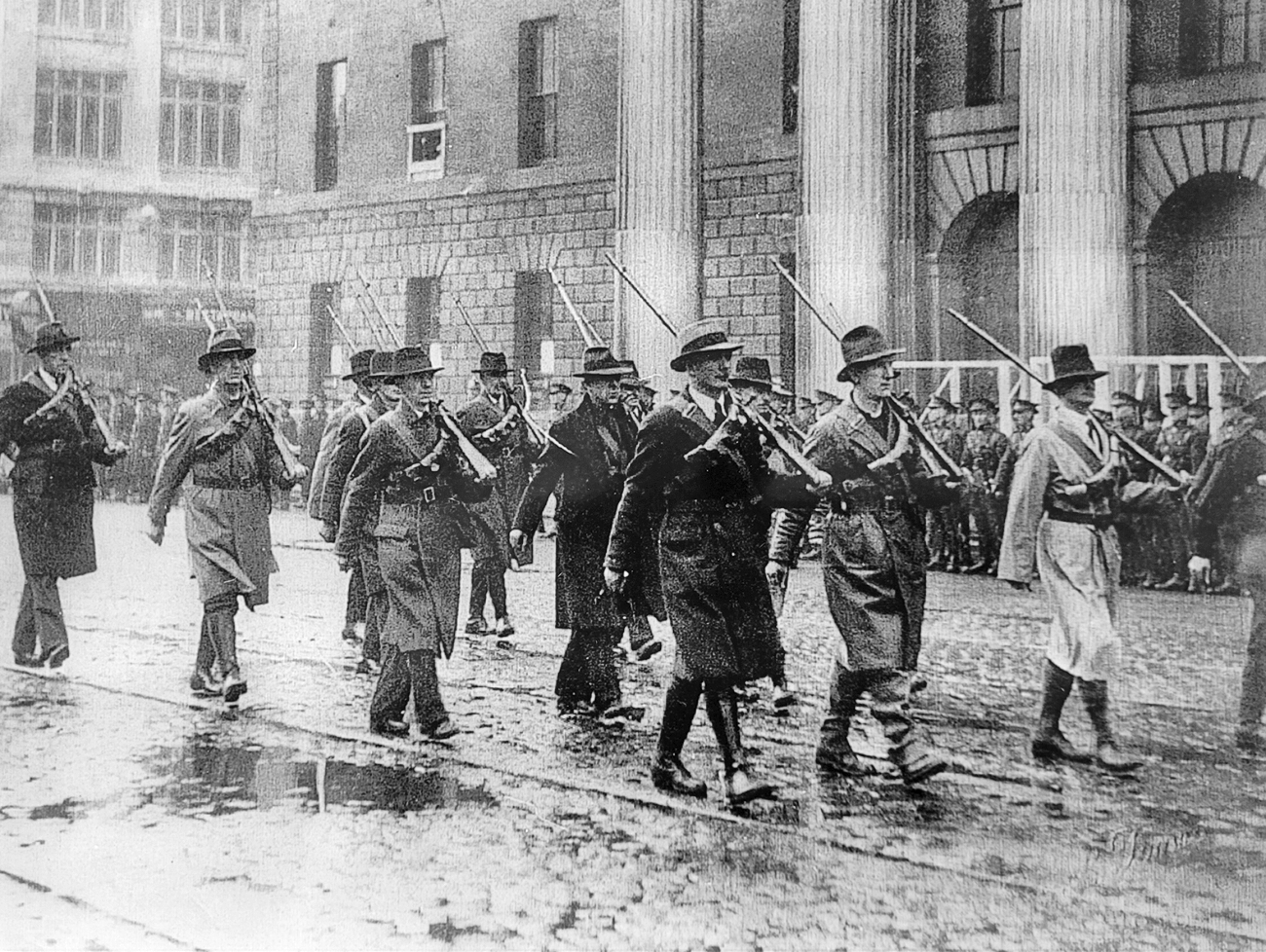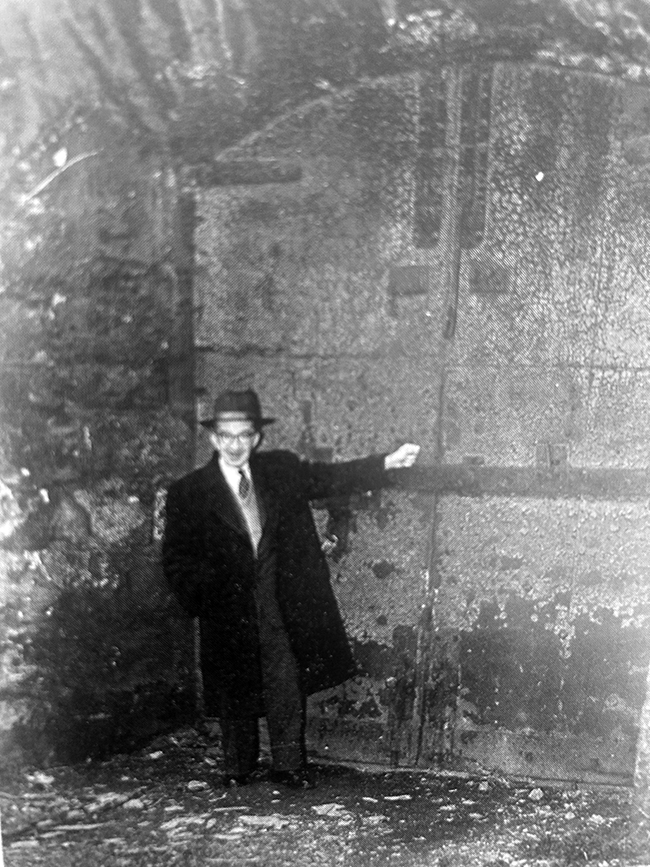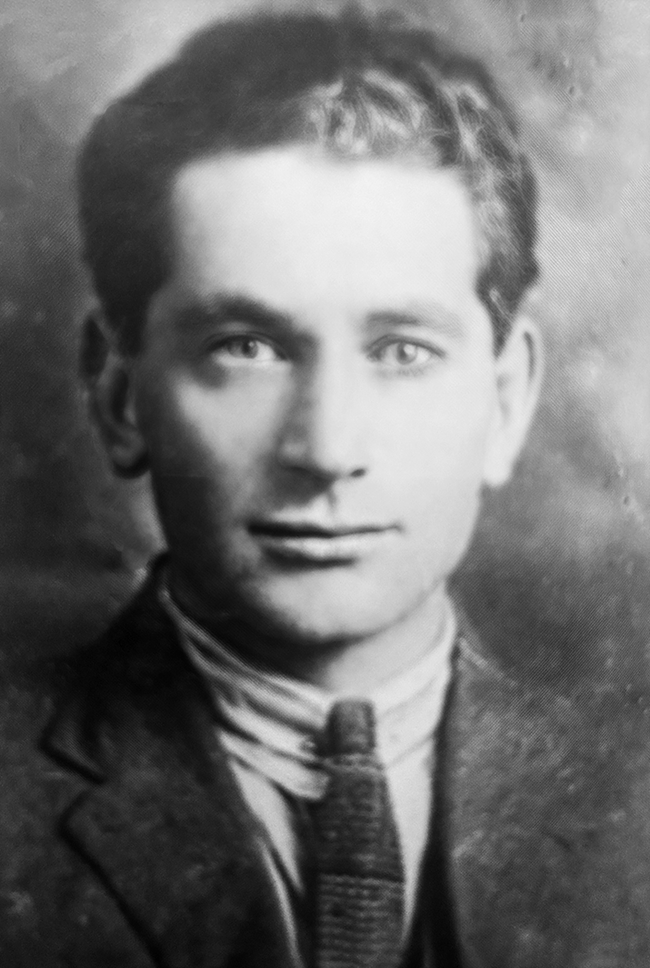7 June 2023
“I’ll finish as I started”
Kilmainham Gaol escape recalled – Remembering the Past by Frank Fitzpatrick

• Michael Smyth in 1916
At a recent lecture on Ernie O’Malley by the historian and Sinn Féin Councillor Mícheál Mac Donncha, I was chatting with Belinda Nugent from the O’Malley/Russell Cumann and I mentioned that my Granda Michael Smyth knew Ernie O’Malley and was instrumental in his famous escape from Kilmainham Gaol in 1921 along with Simon Donnelly and Frank Teeling.
My Granda’s role was to design and make a bolt-cutters that was discreet enough to smuggle into the prison and strong enough to snap the outer lock. And although confident in his design he was only sure his cutters had worked when he read the newspaper flash-headline ‘Iron Bars Do Not a Prison Make.’ The cutters are currently on display in the National Museum.
The four men were active contemporaries in the IRA and he took part with Teeling in the Bloody Sunday operation (November 1920) and served alongside O’Malley in the Four Courts (1922). In 1935 Donnelly wrote that Michael Smyth was “one of the very best and I am personally indebted to him”.
Belinda was taken with our chat and asked me to write a piece about my Granda, Capt. Michael Smyth, E. Company 2nd Battalion, Dublin Brigade.

• Michael Smyth (first left) with a 1916 commemorative firing party
My first and abiding memory of him is when I was 10 years old and I was visiting him and Granny with my mother at 49 West Road, East Wall. We had just finished our tea and my mother and Granny were by the window having a cigarette which meant I was left alone with Granda at the table. I remember being very conscious of the situation and for no apparent reason I stood by his knee before asking “was 1916 important, Granda?” It was only in later years that I fully appreciated the smile than came over his face, I guess it was a bit like asking Nelson Mandela was Apartheid important.
Granny looked over as if surprised by the question but also curious as to what he was going to say. He put his hand on my head and said, “Do you want me to tell you about it, Frankie?”
“Yes, Granda.”
He placed the teapot in the middle of the table. “This is the GPO, headquarters.” The sugar bowl became Jacob’s factory, “this is where I was, on the roof”. His Sweet Afton cigarette packet became Mount Street Bridge, his cup was Boland’s Mills, the milk jug was the Helga Gun Boat, and so on, until we had the Easter Week battlefield on Granny’s kitchen table.
“Can you see it, Frankie?”
“Yes, Granda.” He then proceeded to give me a day-by-day account of Easter Week 1916 – and by the end of the lesson I was an Irish republican.
Sadly, he died not too long after from an aggressive throat cancer and I often wonder did he know he was dying when he was passing down his love of Ireland to his 10 year old grandson. Later, I found out that he joined the Irish Volunteers in 1914 while living at 2 Bayview Avenue, North Strand, and remained an active volunteer until the end of the Civil War in 1922. The Granda I remember was soft and kind with an open warm smile who, according to my mother, was also a kind caring father to his ten children. However, his kindliness belied a steely resolve.
After joining the Irish Volunteers his first recorded job was collecting the Howth rifles (1914). Subsequently, he occupied Jacob’s factory in 1916 with Thomas MacDonagh and Seán McBride. From there he was interned at Frongoch Camp with Michael Collins and his good friend Sean T. O’Kelly, later President of Ireland.

• Escaper Simon Donnelly shows where the bolt on the Kilmainham Gaol gate was cut with the bolt-cutters made by Michael Smyth
In his papers he talks about being one of a four-man security detail escorting Collins (1919) past a full detachment of British soldiers. He says his hand was sweating as he gripped a revolver in his pocket and ‘prepared for a bloodbath.’ Thankfully, Collins wasn’t recognised and the five walked past the British detachment unhindered. Another action that comes to mind was when he had commandeered a large consignment of revolvers during the Civil War and his lorry was stopped by a Free State Army patrol. On discovering the weapons in the back of the lorry the Commanding Officer approached the cab where he saw my Granda holding a revolver in his lap. They eyeballed each other for a moment then the young officer asked, “Who are you?”
“I’m no July Volunteer,” Granda replied, meaning he was a seasoned veteran from before Easter 1916 and they were both now in a serious situation. In his papers, he describes the moment and says he had decided, “If I’m going, he’s coming with me.” However, he was vastly outnumbered and thankfully a shoot-out didn’t ensue but he was captured and interned for much of the remainder of the Civil War.
There are numerous other stories about his part in Ireland’s struggle for her freedom, such as, himself and Capt. Tom Kilkoyne commandeering the paraffin truck that was used to burn the Custom House, or the half tonne of gelignite he commandeered that was instrumental in the IRA’s use of grenades in the War of Independence. “Without this gelignite the IRA would not have been in a position to employ grenades.” (Adjutant Frank Henderson)

• Frank Teeling who escaped with Ernie O'Malley and Simon Donnelly
His Commanding Officers thought highly of him. Later, Minister Oscar Traynor TD, described him as “an extremely active man in an extremely active company.” Adjutant Frank Henderson wrote, “he was undoubtedly one of the best men in the Brigade.’ Major General Tom Ennis said, ‘...he was one of the few men I could place absolute reliance on.” Twice Ennis offered him a Commission in the Free State Army and twice he declined, telling Ennis “I’ll finish as I started.”
• — • — • — • — • — •
Frank Fitzpatrick is a member of the Nellie Gifford Cumann in Dublin Central.
All quotes and references are verifiable at the Bureau of Military History archives.
Follow us on Facebook
An Phoblacht on Twitter
Uncomfortable Conversations

An initiative for dialogue
for reconciliation
— — — — — — —
Contributions from key figures in the churches, academia and wider civic society as well as senior republican figures




